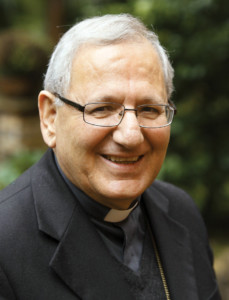
Louis Raphaël I Sako.
Could the entire Middle East be without Christians? Even to ask that question seems shocking, but the reality is that, after 2000 years of a significant Christian presence in the region, the events of recent years have raised this question. “We must not resign ourselves to think of a Middle East without Christians,” Pope Francis on December 16, in a tweet posted on his Twitter account. Iraqi Chaldean Catholic Patriarch of Babylon Louis Raphaël I Sako, the head of the Chaldean Catholic Church, could not agree more. He is doing all he can to make the Pope’s appeal come true, by tirelessly calling on the West through symposiums, interviews, and articles to act concretely for the Iraqi and Middle East Christians. For this ceaseless defense of the Christian community of the Middle East, we honor Patriarch Sako as one of the “Top Ten” people of 2013.
Obviously, the Chaldean prelate is not hoping for new Western military engagement, but the use of diplomatic influence to ensure that all citizens in Iraq enjoy equal protection under the law, not just in Iraq but in the region generally. If Christians are driven out of the Middle East, he warned, the result will be “just like the Taliban,” he said on December 16. “We sometimes wonder, if they kill us all, what would be the reaction of Christians in the West? Would they do something then?”
“The West does not understand the difficulties and fears that Christians are currently experiencing in various countries of the Middle East,” Sako said in his keynote speech at a two-day symposium in Rome on “Christianity and Freedom: Historical and Contemporary Perspectives,” which took place December 13-14 at the Pontifical Urban University in Rome in coincidence with the 1,700th anniversary of Emperor Constantine’s historic Edict of Milan, which granted religious freedom to people of all faiths throughout the Roman Empire. “Religious radicalism is growing and becoming very aggressive. Religious violence is on the increase across the Middle East, breaking up communities and destroying relations between peoples from different religious traditions. This violence is damaging the very fabric of Middle Eastern societies. Islamist extremists want to take advantage of the current situation (that is, the anarchy in several regions) in order to empty the Christian presence in the Middle East, as if it were an obstacle for their plans. There are countries that do not want the so-called ‘Arab Spring’ democracy. Freedom is dangerous to them. The West has to open its eyes to see both the fears and the hopes that animate the Christians and minorities in Iraq, Syria, and Egypt. Most Christians ask: what is the guarantee that we will be able to stay alive, not to be killed or expelled from our countries sooner or later? How can we achieve safety and a brighter future? These are the challenges and the crucial questions.”
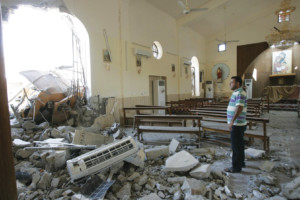
A church near Bagdad, Iraq, destroyed by a bomb.
In the footsteps of his predecessors, Pope Francis has recently called for peace in the Middle East, including guarantees for “the right of Christians to live serenely where they were born, in the country they have loved as citizens for 2000 years.”
To give an idea of the tragic situation, Sako quoted a number of figures in his Urban University speech. During the past 18 months, more than 100 Egyptian churches have been attacked. In Syria, 67 churches have been attacked, two bishops and 12 nuns have been kidnapped, and more than 45,000 Christians have left the country.
Since 2003, more than 1,000 Christians have been killed in Iraq. Others have been kidnapped and tortured. More than 60 churches and monasteries have been attacked. In 1987, the community of Iraqi Christians numbered more than 1.2 million members. Today, less than half remain and their numbers continue dropping. Each month several families (about 10 persons a day) who are in a good economic situation leave for good. Many young Christians, especially those who are well educated, are leaving Iraq. This is an immense loss for those who stay. It is an immense loss and tragedy not only for Iraqi culture and politics, Sako underlines, but also for the entire region, with some countries of the West even encouraging the emigration of Christians. On the contrary, “the West and the international community should increase their efforts to assist the Muslim nations of the Middle East in modernizing Islam’s approach to religious freedom,” he claims. “As part of these efforts, the West and the international community should work to convince Muslim nations that their repression and persecution of their minority Christian communities is not only harming the Christians, but is harming the societies themselves. All should work to stop the mortal exodus that afflicts the Christian community and the entire Middle East.”
But also a “trip by Pope Francis to Iraq, the first in history by a Pope, would be a big, high impact and extraordinary show of support,” Sako said in December. “In the past, Popes visited Syria, Jordan, and Lebanon, but never Iraq. At present, we can create the conditions for a trip because we can expect the government to do everything to ensure his safety. For us Christians of Iraq, his visit is a necessity, because we need his solidarity and support. Since he performed a miracle in Syria [helping to stop a military escalation and an intervention by the international community], he can perform a miracle here.”—Alberto Carosa


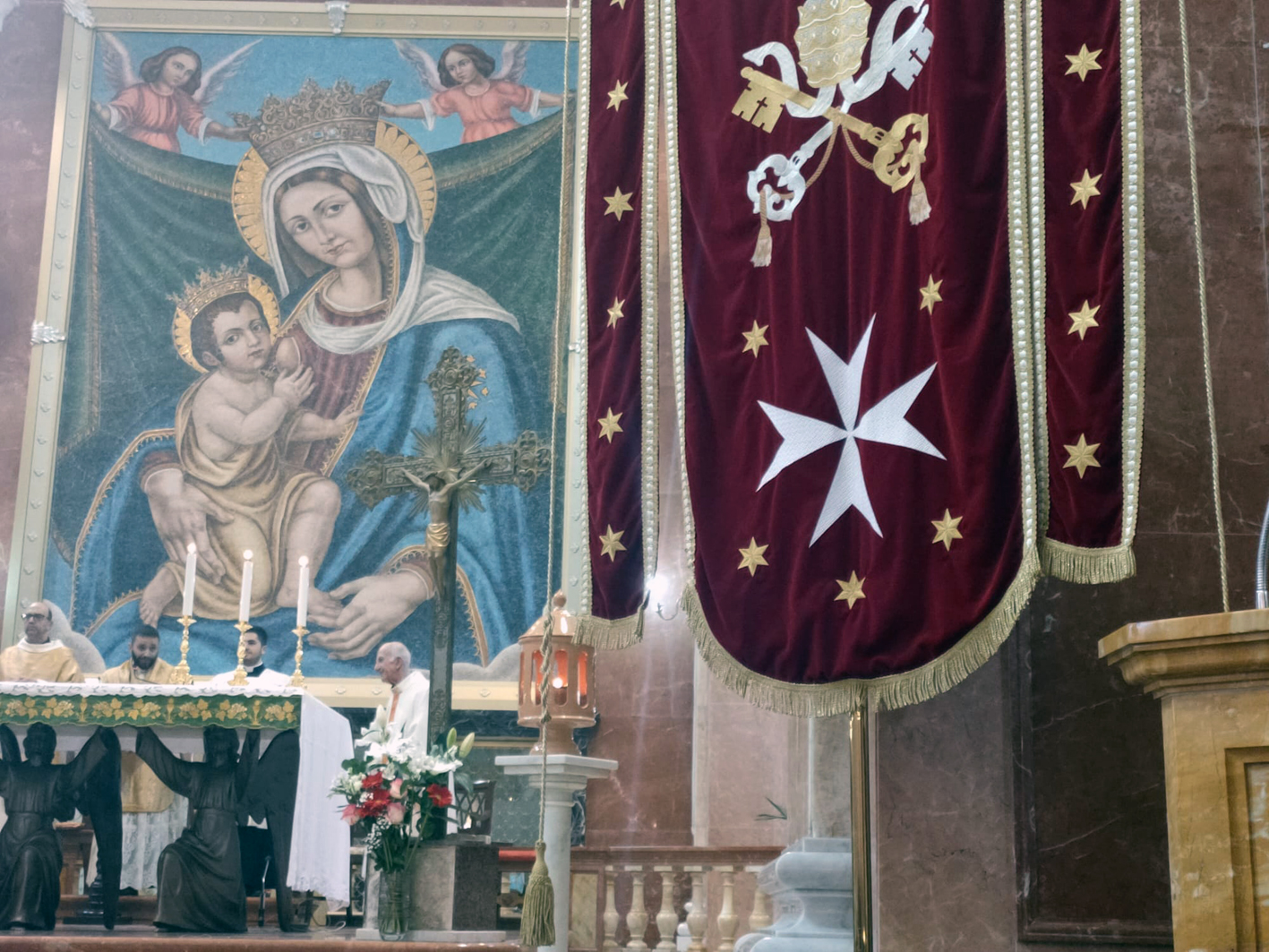
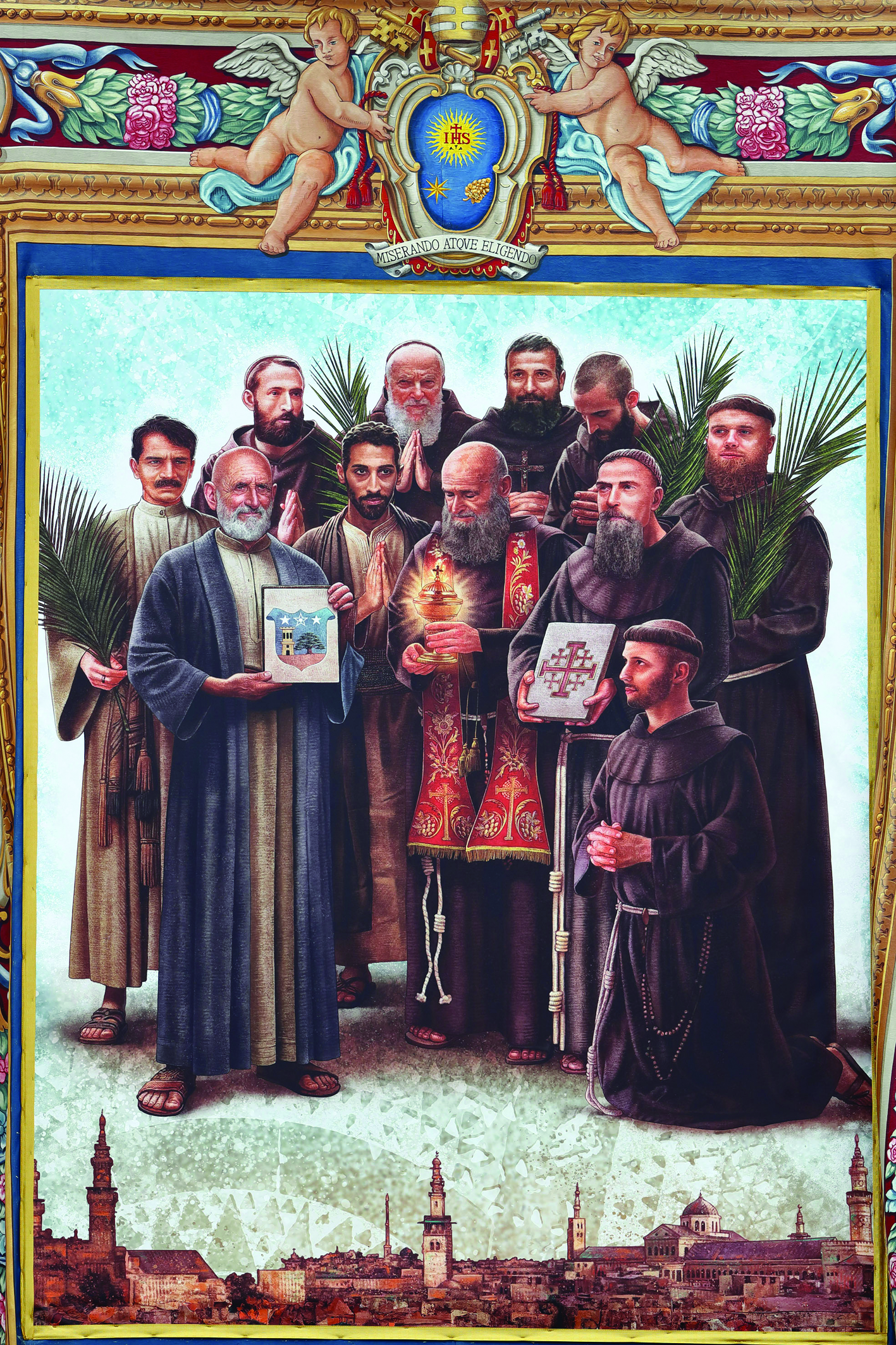
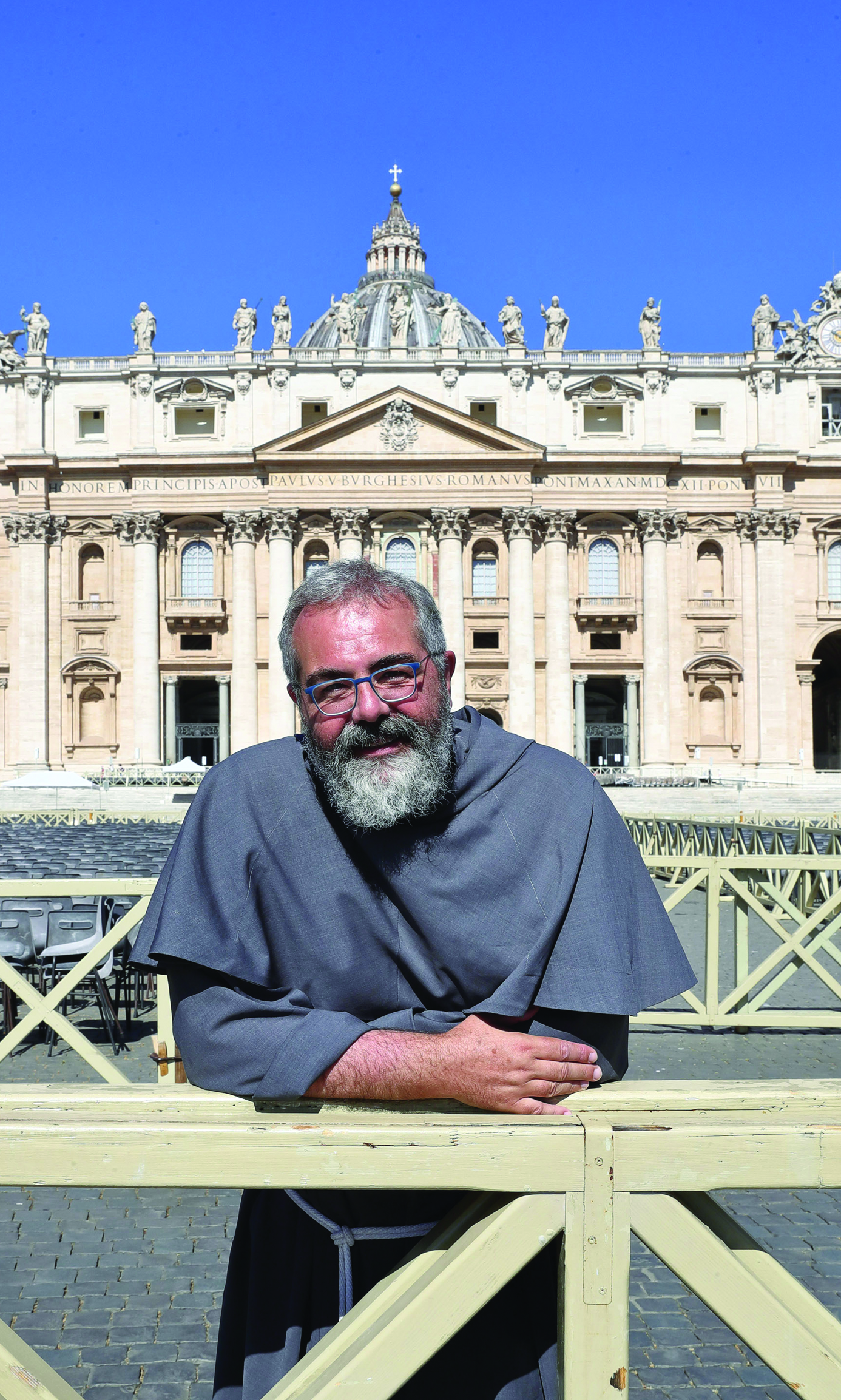

Facebook Comments